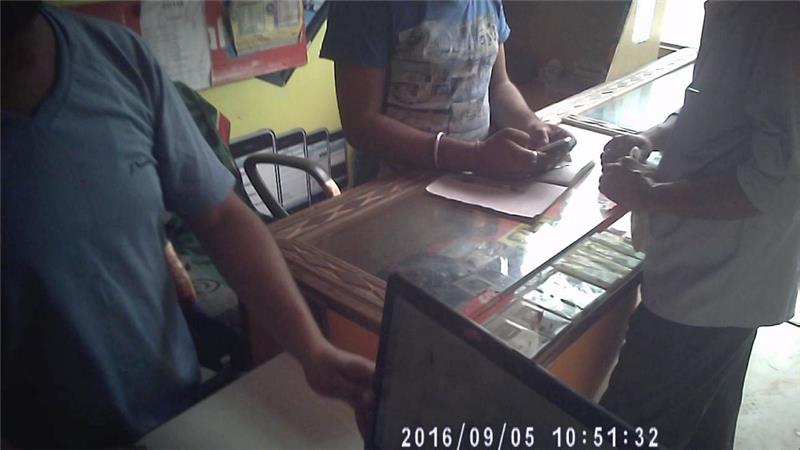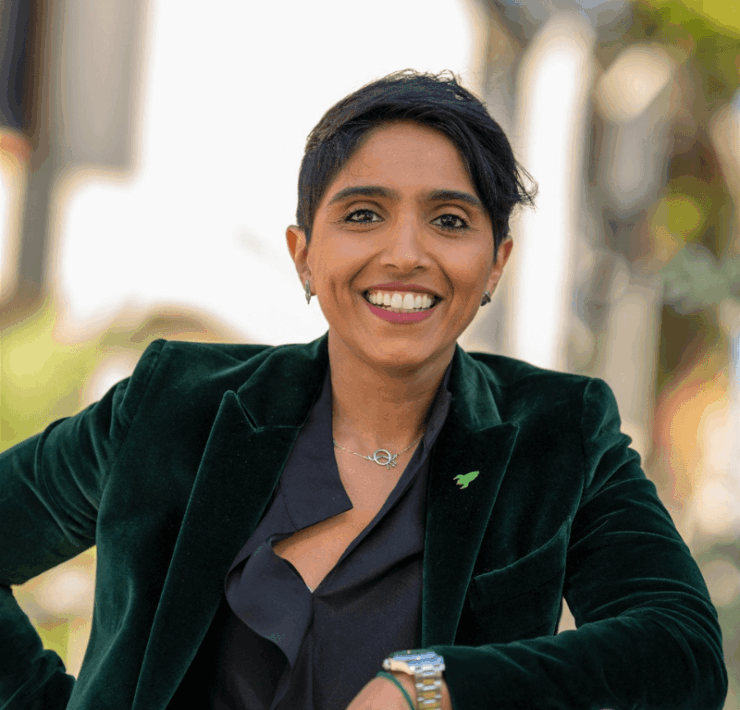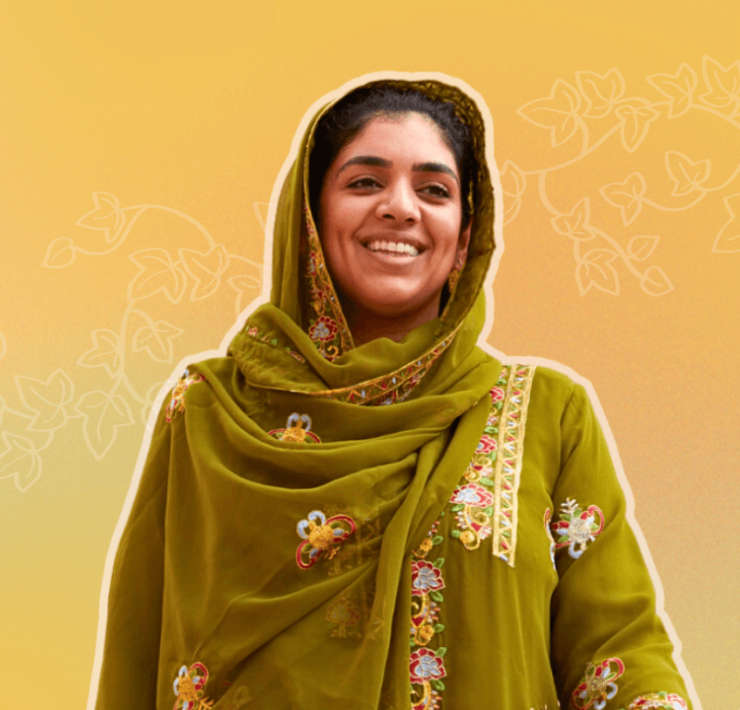By Francesca Kelsall
As Internet access across the world becomes more and more pervasive, the use of social media is growing exponentially. Whilst some of the consequences of this development are positive, such as access to information, others are much more sinister. The BBC has recently launched an investigation entitled “Sex, Honour and Blackmail in an Online World”. Through this investigation, they have exhibited a selection of pieces exploring the harrowing stories of people, mainly females, who have been shamed online through various social media platforms such as WhatsApp, Facebook and YouTube. The BBC has created a pilot website that presents these stories through interpretive videos, interviews and articles and allows readers to take part and share their reactions with a live twitter feed using the hashtag #shameonline.
The concept of naming and shaming is not new. Even in the most trivial context, we are all aware of the embarrassment that can be caused by someone calling you out on actions that are deemed wrong in either their eyes or the eyes of society. However, the #shameonline campaign centres around those who have been shamed through the distribution of intimate or sexually explicit photographs and videos. People have either been exposed to shame and consequently shunned by their families and confined to loneliness, misery and in some cases, suicide, or they have been blackmailed into performing various acts at the risk of the release of the content, a practice that has coined the term ‘sextortion’. Certainly this problem occurs in every country in the world, but it is particularly prominent in conservative cultures in regions such as North Africa, the Middle East and South Asia, where the majority of these BBC stories take place.
 A special series of reports published by the Dubai School of Government in 2011 investigated the role of social media in Arab women’s empowerment. Though the report is now five years old, it displays trends that are still present today. According to the report, many of the survey respondents felt that social media has the potential to be a tool of empowerment for Arab women, however this view is not reflected by reality. The report also described a ‘virtual gender gap’, showing that men are twice as likely as women to use social media. The reasons behind this are in partly due to the environmental factors that discourage women from joining social media platforms such as discriminatory attitudes and cultural constraints. It is these cultural constraints that contribute to the practice of shaming women online.
A special series of reports published by the Dubai School of Government in 2011 investigated the role of social media in Arab women’s empowerment. Though the report is now five years old, it displays trends that are still present today. According to the report, many of the survey respondents felt that social media has the potential to be a tool of empowerment for Arab women, however this view is not reflected by reality. The report also described a ‘virtual gender gap’, showing that men are twice as likely as women to use social media. The reasons behind this are in partly due to the environmental factors that discourage women from joining social media platforms such as discriminatory attitudes and cultural constraints. It is these cultural constraints that contribute to the practice of shaming women online.
Some of the stories from the BBC’s investigation truly leave the reader stunned. Stunned at the plight of these victims and appalled at the sheer volume of stories and the diverse methods in which women and men are exploited and extorted online. One story recounts the tale of a woman in Uttar Pradesh in India who was filmed being gang raped. When the video was circulated around local villages via WhatsApp, the woman’s honour was called into question by her family, friends and neighbours. Local authorities reportedly told her the incident was her fault and that she should keep quiet. The isolation, shame and public humiliation drove her to suicide just weeks after the rape occurred.
Al Jazeera has recently published articles about many other similar videos of rape circulating in the state of Uttar Pradesh, and the developing trend of these videos (referred to as ‘local films’) being sold to men from the region who are willing to pay. According to the investigation by Al Jazeera, when one of these videos is sold from a local shop, the video can be sent to the customers mobile phone. The videos are usually only sold to local men in order to keep the availability of these videos clandestine. The callous disregard for women’s rights in Indian society has contributed to a rise in sexual violence in the country of which the whole world has become aware. Videos of rape are alarming to say the least, and show a display of patriarchal dominance that could prove fatal (either directly or indirectly) for the female protagonist.
 In Uttar Pradesh, men can pay to download videos of rape, referred to as ‘local films’ (image: Al Jazeera)
In Uttar Pradesh, men can pay to download videos of rape, referred to as ‘local films’ (image: Al Jazeera)
The BBC also published a piece on Qandeel Baloch, a social media star in Pakistan who has been referred to as the Pakistani ‘Kim Kardashian’. She was well known for her controversial and unconventional online posts, her public appearances in non-traditional, sometimes revealing clothing and her calls for women’s empowerment. In July of this year, Baloch was strangled and murdered by her brother, who later confessed to the crime and defended it as an ‘honour’ killing. Public opinion on Baloch’s profile had been extremely divided in Pakistan, with support for her attitude and her defiance of conservative social norms clashing with the numerous death and rape threats that were posted to her social media platforms.
Honour killings are becoming endemic in Pakistan. According to Al Jazeera, around 500 women in Pakistan are killed by their relatives each year, all for reasons concerning their honour and their modesty. Only days after the murder of Baloch, a young British woman visiting her family in Pakistan was reportedly murdered by her own father and a previous husband outraged by her unorthodox decision to remarry. The woman’s widower had also reported receiving online death threats from her family prior to the murder.
 Pakistani icon of women’s empowerment, Qandeel Baloch, was murdered by her brother in July 2016 (image: The Daily Beast)
Pakistani icon of women’s empowerment, Qandeel Baloch, was murdered by her brother in July 2016 (image: The Daily Beast)
For some readers, these stories may appear to be far from home, but that doesn’t mean it isn’t happening in the West. At the time of writing, a hearing is taking place in a Welsh court regarding the extortion of Muslim women by a local man. Farhan Mirza developed various relationships with women whilst posing as a doctor, during which time he took voyeuristic photographs and videos of the women when they were naked or exposed. He then proceeded to blackmail the women, threatening to release the content online unless they provided him with money and material goods. He reportedly used the words “I can make you mega famous”, a phrase that encapsulates the power of shame in the Muslim world.
In the majority of cases, women are the victims of these crimes. However, a small city in central Morocco called Oued Zem has come to be known as the best place to make a profit from the online extortion of men. The premise is that a beautiful woman contacts a man online, out of the blue. As they chat she instigates a sexual video interaction and convinces the man to masturbate on webcam for her. After the exchange the man is contacted and told that the woman on the webcam was actually a stock video from a pornographic website. In reality the person behind the screen is a man who has recorded the footage and is demanding money in exchange for the footage remaining undisclosed. Reportedly 30,000 men from the Gulf States have fallen prey to these scammers. The BBC managed to interview a man from Oued Zem, from where about a third of these scams originate, who takes part in online extortion and who labels young Arab men as the easy targets.
Despite all of this, there are some who are challenging the shaming culture. The concept behind shaming is the importance of maintaining family honour. Unfortunately for women, family honour is often defined by female sexual purity. Some formidable women are standing up in defence of their sexual freedom, often at risk to their own safety. These women are harnessing the positive power of social media.
The BBC profiled one such woman in Egypt, called Ghadeer Ahmed. In 2009 she was filmed at a friend’s house dancing in non-traditional clothing and she decided to send the video to her boyfriend. When their relationship ended three years later, the boyfriend posted the video on YouTube in order to shame and humiliate Ghadeer. In 2012, she had recently taken part in the Egyptian revolution and as a result had removed her hijab and begun to speak out in favour of women’s rights. She was torn between fear of the video being seen by her conservative family and anger at the fact that a man wanted to publicly shame her. Ghadeer took legal action against her ex-boyfriend. Many people shared the video and directed abuse at her in order to discredit her. Finally, in 2014, she made a decision: “I refuse to be shamed for having a female body.”
 Ghadeer Ahmed is challenging traditional gender stereotypes in Egypt (image: BBC)
Ghadeer Ahmed is challenging traditional gender stereotypes in Egypt (image: BBC)
Ghadeer shared the video to her own Facebook page and embraced it as a natural expression of her own sexuality. Ghadeer’s opinion that women should be able to make their own decisions about their own bodies is embodied in the movement, Girls Revolution. In Great Britain during the Victorian era, cycling became a powerful symbol of female emancipation, allowing women to travel more independently whilst also taking part in a very physical activity. Over a century later, the Girls Revolution is encouraging the same thing in Egypt by creating organised cycling events.
Girls Revolution began as a hashtag but quickly developed due to the enthusiastic involvement of many young females in Egypt vying for change. In this respect, it is clear that social media can be both the accessory to and the defender of online shaming. The development of hashtag activism creates a positive and pervasive outlet for women to advocate for women’s rights – an example of which is The Middle Eastern Feminist, a pro-intersectional feminism page on Facebook that encourages discussion and the eradication of oppression.
Despite the fact that social media activism takes place behind the safety of a keyboard, these women are all taking personal safety risks. In 2015, Pakistani activist Sabeen Mahmud was assassinated. An Al Jazeera journalist, Rabia Mehmood, vented her anger into the Twittersphere. Her tweet provoked a barrage of rape and death threats and her only option to avoid the abuse was to temporarily deactivate her social media accounts. Though in other contexts this would not necessarily stop the sharing of content intended to shame the subject, it is an indicator of the widespread view that women should be more careful in the world of social media and practice self-censorship, or else risk being exposed to threats that could eventually become a reality.






